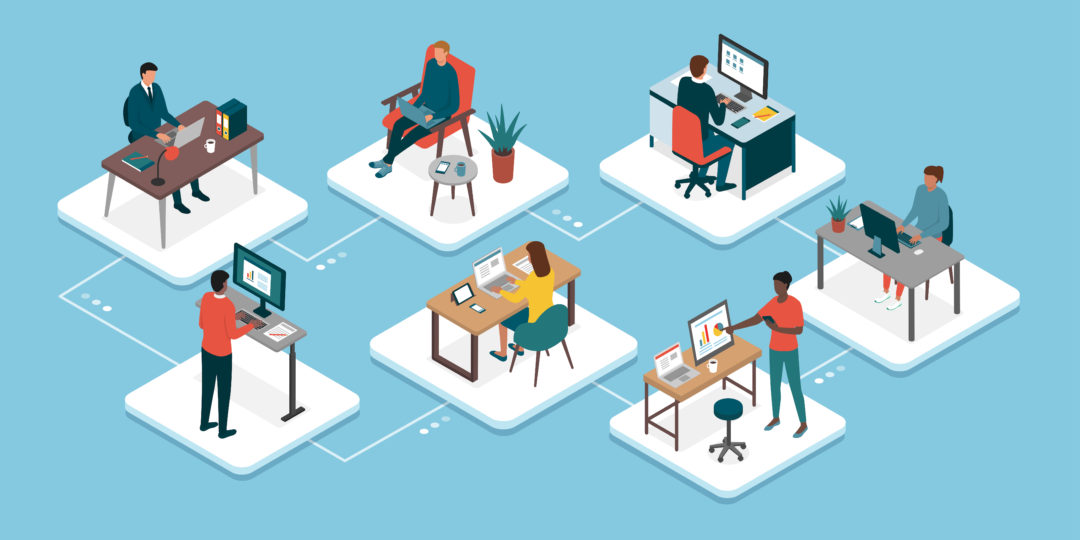I have always understood the importance of hands-on learning. Growing up in southwestern Ontario’s Perth County – home to farmers, millwrights, nurses, plumbers and mechanics – my hockey team was organized by an electrician, an operating room nurse and a nursing home dietary manager. My parents were both healthcare professionals. What the people who worked in my neighbourhood had in common was an applied, hands-on education. A polytechnic education.
Whether I realized it at the time or not, polytechnic education has long been an important part of my life, compounded as I spend my summer as a co-op student at Polytechnics Canada.
Over the last few months, I have heard from friends who are current students or recent graduates. Most have waited anxiously to hear back from prospective employers about work over the summer and into the fall. One friend, who is in her last year of a carpentry apprenticeship, fears she will not get the workplace experience necessary to apply concepts she learned in the classroom. For her, work experience is a requirement of certification.
The pandemic has made evident that those who work in hands-on fields, like my friend in carpentry, will face the greatest challenges around their education, training and employment. This is something I dealt with myself. Prior to my placement at Polytechnics Canada, I worked as a lifeguard and swim instructor. My job was entirely hands-on and, given the impossibility of giving swimming lessons via Zoom, I was laid off at the end of March.
Understanding the importance of a hands-on education, including the benefits of work-integrated learning, was a key reason why I chose the co-op option when deciding to study Public Affairs and Policy Management at Carleton University. I am fortunate that my workplace experience, unlike lifeguarding or one of the many other jobs generally available to me in Perth County, could continue online. This summer, I was ecstatic to secure a position that allows me to work remotely. Doing so in the midst a global pandemic has been a unique, yet rewarding, experience.
At first, the idea of a virtual placement was daunting. How would I develop connections or benefit from mentorship without ever stepping foot into an office? I spent time researching how to work remotely and have implemented some of what I learned, such as establishing a routine and running, swimming or cycling before or after work. My office, although not traditional, works for me. My laptop, elevated with six textbooks, sits at eye-level with a monitor plugged in beside it. I use a Bluetooth keyboard, mouse and headphones. Even working remotely, I have learned so much.
I have spent my days conducting research, summarizing and compiling daily intelligence briefings, and meeting with team members over Zoom and Microsoft Teams. I have learned how to be adaptable, creative and communicative, all in cyberspace. I have learned how to actively listen, ask questions and contribute to a team of people doing the same. I have gained confidence writing content in a format other than research papers and have been tasked with the critical analysis of a wide variety of published content. The skills I am developing and refining demonstrate that work-integrated learning – even in a virtual environment – can be an effective way to provide a meaningful professional experience.
Apart from the benefit of applying classroom theory in a professional environment, I have discovered ways to make remote work productive. Free from external distractions, I listen to podcasts or music to help me focus. I have the added flexibility of splitting my time between Ottawa and southwestern Ontario, something it was hard to imagine would have otherwise been possible this summer. Being close to family helps with the isolation.
Even online, I believe work-integrated learning has been a huge win for everyone. Polytechnics Canada has a student who is eager, motivated and ready to offer ideas and unique perspectives. I have developed workplace skills and experience, started to build a professional network and had the opportunity to explore a prospective career. Together, we’ve figured out how to provide mentorship and support never having met face-to-face.
We do not know when life will return to normal, or what that new normal might be. While I have been able to continue my work placement remotely, this is not the reality for all students. According to a Statistics Canada survey, one-third had their work placement cancelled or delayed due to the pandemic. If remote work becomes a new reality, we need employers and our post-secondary institutions to figure out solutions.
We also need to think about how we can support students in hands-on programs, like healthcare and the skilled trades. These are not just the backbone sectors of my community, but represent the same occupations that stepped up to keep Canada running at the height of the pandemic. How do we ensure continuity of applied education and training for learners who can’t work from home or whose work experience doesn’t translate well to a virtual environment?
As Canada looks for education and training solutions in times of disruption, we need to remember that education is more than theory. It is about developing skills you can use throughout your career. The application of what we learn, facilitated in workplaces, is critical to skills development, professional development and personal development. Supporting students access to these opportunities will be critical to Canada’s economic and labour market success, throughout the pandemic and beyond.

